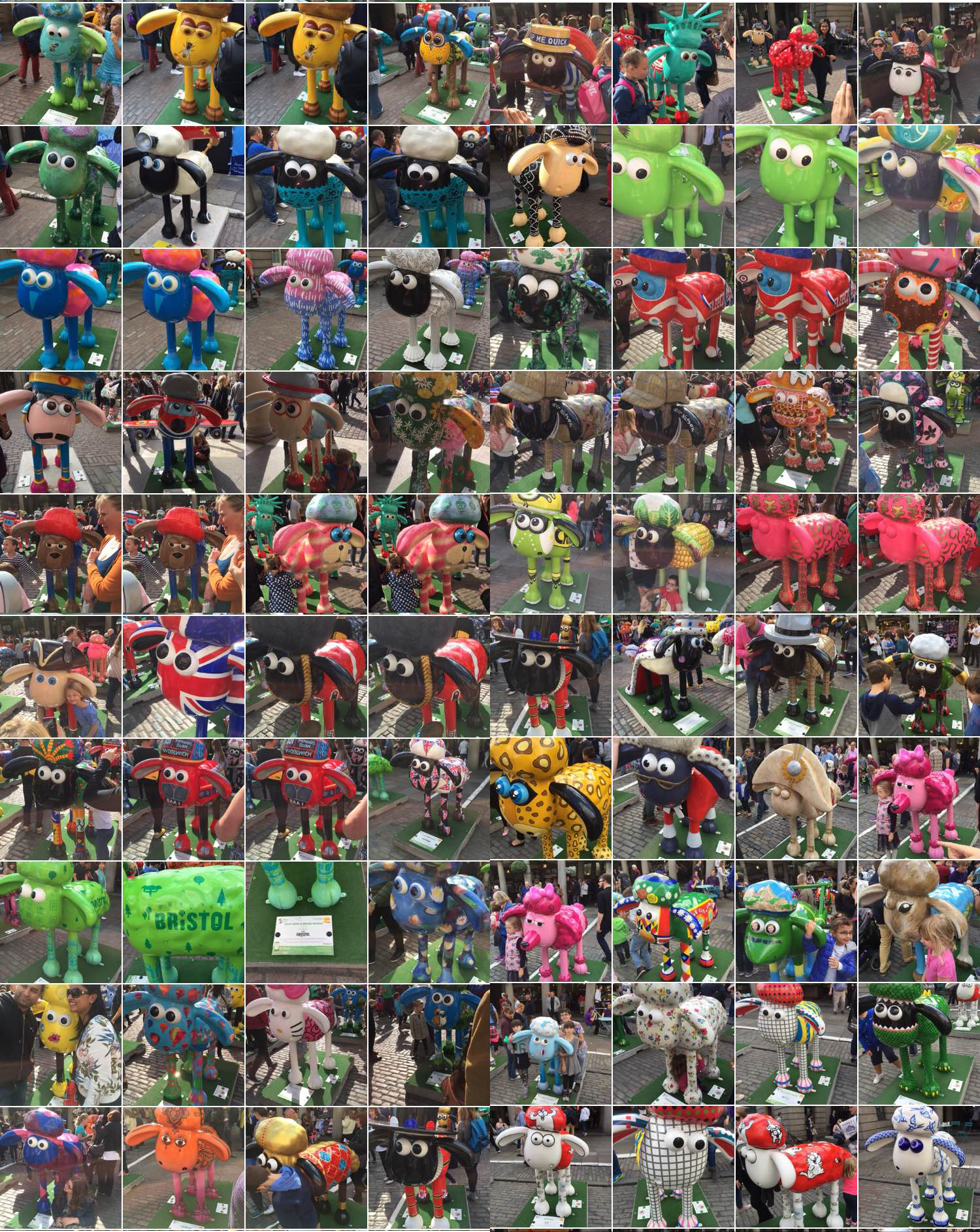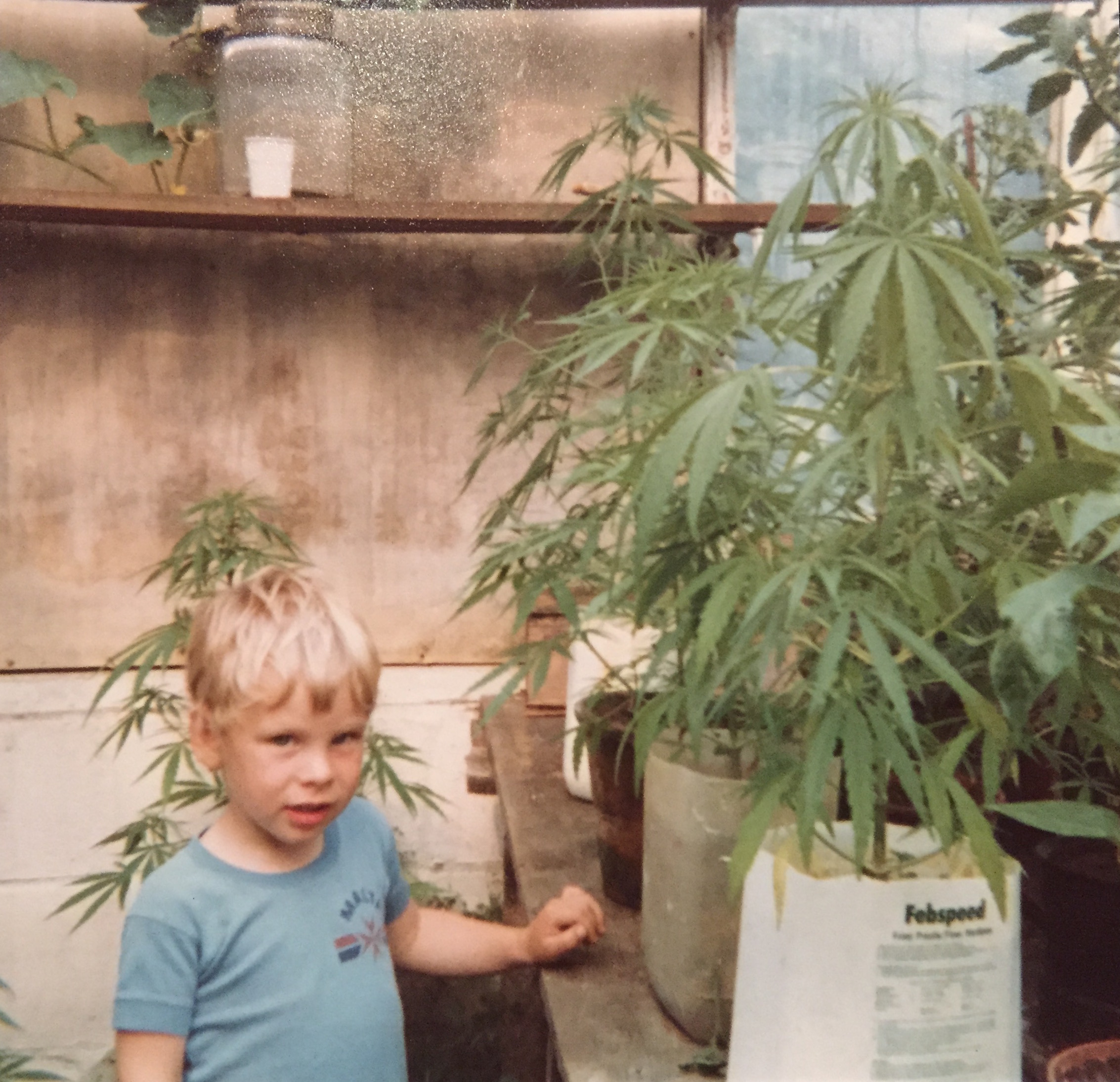This is a story of a growing problem in people's lives....

I can't get no sleep. That's a double negative. What I mean is, that I have a problem with insomnia, because I stare at backlit devices around-the-clock. The problem with backlit devices is that they output light that hits your retina, telling your body "it's daytime, get up".
When I'm awake, which is most of the time, I'm either at work on my laptop or working at a double or even triple monitor, looking at my phone, or looking at a TV, tablet or some other backlit device. I had even taken to reading books on my phone, which means that my body had absolutely no light-based clue as to what the f**king time is.
Unsurprisingly, this messes with your circadian rhythm, even if you eat your meals at regular intervals, and attempt to get in and out of bed at normal times. I generally keep at least 3 electronic devices within grabbing distance of my bed anyway (phone, laptop, smartwatch) and often times I fall asleep with either my laptop on my lap, or still wearing my smartwatch (which helpfully vibrates, so I can briefly wake up to check any alerts).
Photographing stuff on my phone and uploading it to Facebook, Twitter or Instagram, posting check-ins and status updates, and making snide or sarcastic Tweets - from 4 different accounts, at least - has grown and grown, leading to a kind of live-blogging of my life.
To say that I was obsessed with social media would be a massive understatement. It's actually an addiction that is affecting my health. That's the generally recognised definition of an addiction: when something you enjoy is negatively affecting your life, but you are struggling or unable to reduce your dependence on the thing you are addicted to (water, oxygen and sugar don't qualify, you see, because you die without those things).

The inscription around the woolly head of our sheepie friend reads: we are such stuff as dreams are made on; and our little life is rounded with a sleep. Shaun would be well advised to make sure he gets enough sleep, as our immune systems can get dangerously low if we aren't giving our brains and bodies the rest they were designed to have.
Modern life gives us surprisingly few environmental cues as to what we should be doing. Here in London we have artificial lighting 24 hours a day, and there is barely a wall that doesn't have some kind of flat screen attached to it now. We really are a City that doesn't sleep. When all the bankers, lawyers and accountants go home in their taxis, just before midnight, an army of cleaners and trash collectors sweep in behind, to collect all those discarded coffee cups and sandwich wrappers.
Most offices are now 24 x 7 x 364 (you get Christmas Day off - this is the only real Bank Holiday) which have cost-saving motion sensing lighting, so you only have to glance up at one of the tall office blocks at an unusual hour, to get a rough idea of just how many people are working on some unrealistic deadline for their client.
Delivering a deal, getting the Thank Yous from your bosses and clients. High-fiving your colleagues, and adding another tombstone to your impressive collection of deals or projects that you have delivered... that's addictive too. You get a little dopamine hit every time one of those things happens, and before you know it, you find yourself going into the office 7 days a week and answering the phone to your bosses whenever they call.
In a global business, we operate a follow-the-sun model, where Europe hands over to the Americas, and then onto Australasia, and then Asia-Pacific, and then Middle East and North Africa and all too soon it's dawn again. Where those business centres are unable to fully support themselves, some poor sod carries their phone and/or BlackBerry everywhere anytime. We used to call it Crackberry when we first got our BlackBerries, and you found yourself checking email at 4am, even when you officially weren't on call.
We can't actually help ourselves anymore. Whenever we hear that bleep and see that message notification light blinking, we have been habituated into reaching out and grabbing it, no matter what time of day it is, no matter how socially inappropriate it might be, no matter what else we are attempting to do at the time.
I find myself looking at my smartphone, one-handed, while cycling along in front of 3-lanes of red London busses and trucks... what could go wrong? I find myself finishing typing a message, one-handed, while descending steps and even a ladder that leads down onto the 'beach' outside my flat. That ladder is about 80ft high. It would hurt if I fell, or maybe even kill me.
It's a similar deal with selfies. People will go to extreme lengths to get the shot. They won't even let you skydive with a camera until you have done a certain amount of jumps, because of the sensible precaution that people should concentrate on the hard ground that is approaching at 125mph, and not the killer shot that will make their Facebook profile look super awesome.

So I tried to photograph 64 painted sheep in Covent Garden yesterday. Should we be quite worried, in a pathetic hand-wringing Daily Mail reader way? Why? In the above image, some adults might have been accidentally been photographed obsessively taking photos of their children. The image is low enough resolution that you can't actually recognise people, but some idiot will still declare that their privacy has been invaded. Welcome to London, you muppets. We are one nation under CCTV.
(NOTE: I took particular care to avoid taking a photo of anybody's child, and no, that really is not your kid in the image... it's someone else who shops in Baby Gap or Mothercare or wherever, and has a blonde/mousey/dark-haired kid. Can you imagine how hard that is in Covent Garden?).
So, for my part, I am pretty much putting my entire life - not including anything I am under contractual and professional obligation to protect - into the public domain. Nothing to hide, nothing to fear.
Is this brave, or stupid? Will I come to regret doing this? Am I embarrassed? Yes, there is embarrassment at first, and then this grows into a feeling of being liberated. Nudity, sex etc. are still taboos, so I'm not going to take things that far, and I am mindful of other people's need for privacy so I won't be exposing anybody else to my public life laundry. Ask yourself though, why do you feel uneasy about something leaking out?

So, I believe that Cannabis is a very dangerous drug that has been allowed to enter popular culture (some conservative estimates say that 1 in 10 people are regularly 'stoning' themselves). My biggest concern is that prodromal Schizophrenia is being turned into fully blown psychotic episodes in young people. The paranoia and disordered thinking that I have witnessed in friends and relatives is disturbing.
The strains of Cannabis that have been developed with very high Tetrahydrocannabinol (THC) content are ruining many lives. People just sit around, eating, playing computer games, and p1ssing their youth away. These are smart and enterprising people. We are losing a whole generation, and I'm pretty angry about that.
If you walk around Camden Town, you will realise how the Marajuana plant has become a ubiquitous emblem for a huge powerful narcotics industry. The revenue and turnover involved is many many billions, in the UK alone. The corruption involved, the bribery of government officials, is a multi-agency problem that spans Border Controls, Customs, Police, Local Government, and of course, Parliament. Professor David Nutt was run out of government for trying to bring some sanity to the issues which threaten to tear our society apart.
We can't have an entire generation, whose ideas and energy have been repressed by a chemical 'straight jacket'. These stoners are too intoxicated to see that they have been conned. They might think they are part of a counter-culture revolution. From my first-hand observations, they are actually spouting complete rubbish, gawping at the TV, surrounded by empty junk food wrappers, in the stained clothes they have been wearing for days.
It sounds like I'm having a go at young people. I really am not. This is a major sadness in my life, that brilliant, bright, intelligent, energetic, beautiful young people are selling themselves so short, because they have been trapped into a cycle of poverty and intoxication, addicted to strong narcotics. What other hopes do they have? Getting a job as a young person is almost impossible.
Can't get a job without the experience. Can't get the experience without the job. That's the spine-chilling Catch 22 that is destroying a whole generation. These are your children who are being frozen out from the employment market. Take a bloody look at yourself, stop looking at the profit and turnover for your company, and ask yourself how many apprentices have you trained? How many entry-level positions have you created in your company? What are you doing to help the next generation?
Give young people the break they need in life. It could be as little as a small business loan, of a few hundred or few thousand pounds. That kind of money is pocket change compared to the value of your savings and assets. If you don't give away more than 1% of your total personal wealth (value of your house + value of your salary + value of your savings + value of your pension) every year, for the lifetime of each child that you have spawned, then you are a pathetic spineless leech on society.
My parents, tried to be as supportive as they were capable of being, and I love them. They have made mistakes, just the same as all of us, and I do recognise that being a parent is hard, and everybody is just winging it.
Tags: #childhod #addiction #mentalhealth #drugs #privacy #london #banking #career
